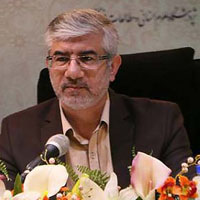Mystical Experience: Its Nature Features
Author(s):
Article Type:
Research/Original Article (دارای رتبه معتبر)
Abstract:
No doubt mysticism is the essence of religious experience and this experience for both those who have religious beliefs and those who have not such beliefs typically causes changes in life. Regardless of the difficulty of describing the mystical experiences which seems very far from the conceptual framework of normal moods, it appears that the similarities among the various religious traditions for various mystical states can be outlined. These similarities include: the experience of unity, the feeling of being beyond time and space, sense of sacredness, a sense of joy and happiness, unity and awareness of the public with a vacuum and an eternal ultimate reality. Mystical states can be divided into two distinct categories: transcendent and immanent. Though Mysticism and spiritual meditation have some considerable similarities to each other, but they certainly look different. These two mystical tendencies in east & west religious faiths in the world to be seen with difference. Differences over the interpretation of mystical experiences may be caused by cultural and linguistic differences and distinctions. Psychological interpretations, neuro psychological and cognitive science of mystical experiences of the research approach is innovative in the world.
Keywords:
Language:
Persian
Published:
Journal of Hekmat e Mo'aser, Volume:1 Issue: 2, 2011
Pages:
107 to 119
https://magiran.com/p2154495
مقالات دیگری از این نویسنده (گان)
-
Rereading Ibn Arabi's Answers to the Problem of Evil with an Approach to Contemporary Theology
Tahereh Baghestani, *, Naeimeh Pourmohammadi, Seyyed Hosein Seyyed Moosavi
Philosophy Of Religion Research, -
Fundamentals and methods of self-knowledge art (wisdom and art) from Ibn Arabi's point of view
Fatemeh Mahmoudi, *, Mohammadtaghi Faali
Islamic Art Studies,



